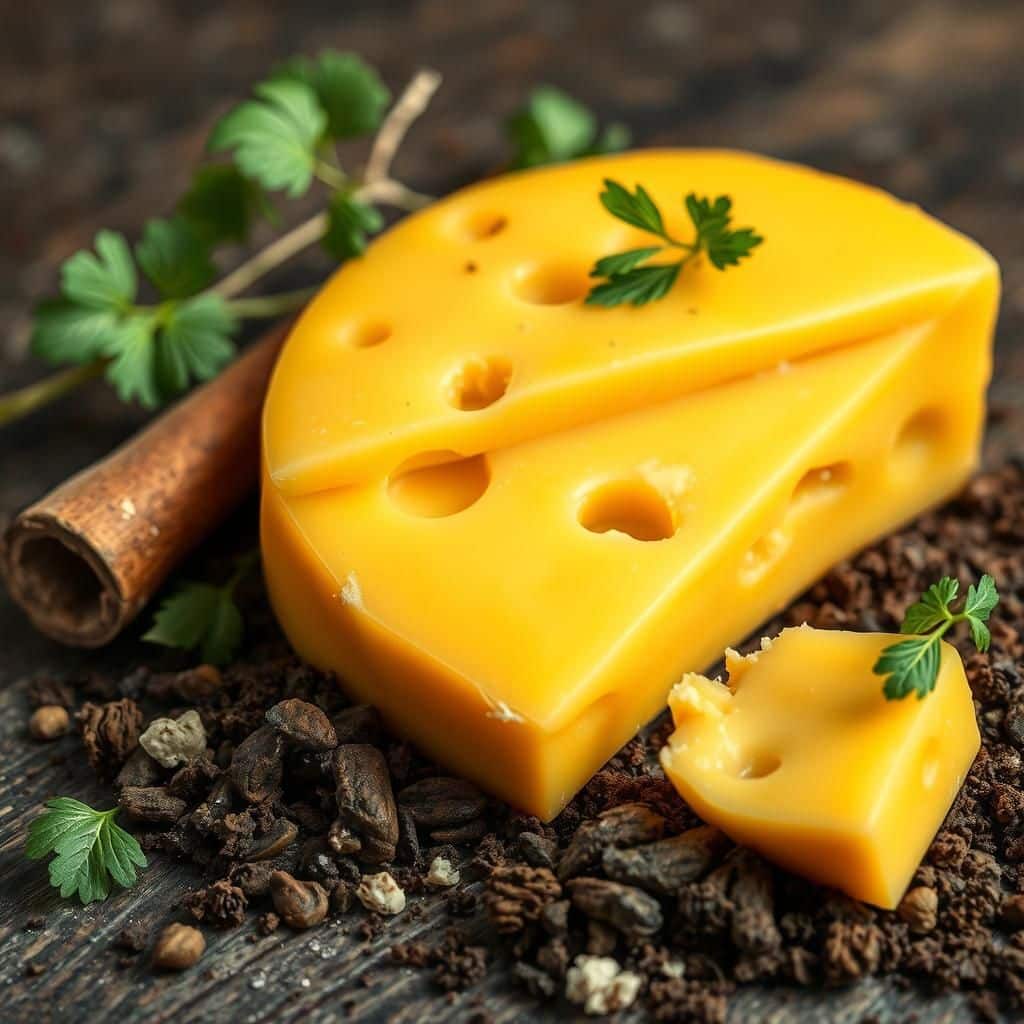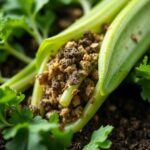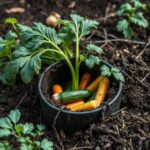Is Cheese Good for Compost? Discover the Truth About Composting Dairy Products

Composting is a great way to reduce waste and enrich the soil, but not all food scraps are created equal. Among them, dairy products, particularly cheese, provoke debate among gardeners and compost enthusiasts. While some advocate for including cheese in compost due to its organic nature, others warn against it due to potential odors and pests. In this article, we will explore whether cheese is a suitable addition to compost and examine the potential benefits and drawbacks of composting dairy products. Join us as we uncover the truth behind cheese and its place in composting practices.
Is Cheese Good for Compost?
Cheese can be a controversial addition to compost piles; while it is a source of nitrogen and calcium, which are beneficial for composting, it also poses challenges. The main concerns with adding cheese are its high fat content and the likelihood of attracting pests, particularly if not well managed. When composting cheese, it is essential to balance it with carbon-rich materials and keep the compost aerated to minimize odors and deter rodents. If you choose to compost cheese, moderation is key, and it's advisable to incorporate it into a hot composting system, where higher temperatures can help break it down more effectively and mitigate potential issues.
Benefits of Composting Cheese
Composting cheese offers several benefits, such as providing essential nutrients like nitrogen, phosphorus, and calcium to the compost. These nutrients can enhance soil health and contribute to the growth of healthy plants. Additionally, cheese can help improve the microbial diversity of the compost pile, promoting a more efficient composting process. However, it should be noted that these benefits come with risks, and proper management is crucial.
Risks of Adding Cheese to Compost
The primary risks associated with adding cheese to compost include the attraction of pests like rats and raccoons, as the strong odor of cheese can be enticing to these animals. Furthermore, the fat content in cheese can slow down the composting process if not balanced with carbon-rich materials. This imbalance may lead to anaerobic conditions, resulting in unpleasant odors and a less efficient composting environment.
How to Compost Cheese Effectively
To compost cheese effectively, it is essential to chop it into small pieces to speed up decomposition and mix it well with carbon-rich materials like dried leaves or straw. Creating a hot compost pile is advisable, as the higher temperatures can help break down the cheese quickly and reduce the risk of odor and pest problems. Regularly turning the compost pile will also aid in aeration, maintaining an optimal environment for decomposing cheese while integrating it with other materials.
See also:
Alternatives to Composting Cheese
If the risks associate with cheese composting are concerns, there are alternatives. Using cheese in a bokashi composting system, for example, can effectively ferment it without attracting pests. Bokashi composting relies on anaerobic fermentation, allowing for the inclusion of foods like cheese, dairy, and meats that are typically discouraged in traditional compost piles. Another option is to discard cheese in a municipal organic waste program, where it's composted in a controlled environment.
Nutritive Values of Cheese in Compost
Cheese has notable nutritive values when added to compost. It is rich in essential macro-nutrients like nitrogen, which stimulates microbial activity, and calcium, which is vital for plant cell wall structure and soil balance. Although cheese varies in fat content based on type, its contribution can enhance nutrient density in compost. The careful use of cheese in composting can thus enhance the overall quality of the end product if managed correctly.
| Cheese Type | Fat Content (%) | Nitrogen Content (%) |
|---|---|---|
| Cheddar | 33 | 0.5 |
| Feta | 21 | 0.7 |
| Parmesan | 28 | 0.4 |
| Ricotta | 10 | 0.6 |
| Blue Cheese | 28 | 0.5 |
The Benefits and Risks of Composting Cheese
Composting cheese can be a contentious subject among compost enthusiasts. While cheese is a dairy product that offers some nutritional benefits for compost, it also poses several challenges. One of the primary benefits is that it adds organic matter and valuable nutrients like nitrogen, which are essential for soil health. However, the risks include attracting pests and rodents, as well as the potential for unpleasant odors during the composting process. Therefore, successful composting of cheese requires careful management and consideration of its impact on the overall compost environment.
What Types of Cheese Can Be Composted?
Not all types of cheese are equally suitable for composting. Generally, hard cheeses such as Parmesan can be composted more effectively than softer varieties like cream cheese or ricotta. Hard cheeses tend to decompose more slowly, allowing for better integration into the compost pile. However, regardless of the type, it is advisable to use cheese in moderation to prevent issues with pests and odors, ensuring a balanced approach to compost material.
How Much Cheese Should You Add to Compost?
When incorporating cheese into your compost pile, moderation is key. A good rule of thumb is to add no more than 10% of the total compost volume as dairy products. This limited amount helps to maintain a healthy carbon-to-nitrogen ratio and prevents the pile from becoming too wet or overly smelly. Excessive cheese can disrupt the composting process and create an environment that favors unwanted organisms. Therefore, careful measurement is important for effective composting.
See also:
How to Properly Compost Cheese
To compost cheese effectively, it's important to chop it into small pieces to aid in decomposition. Incorporating cheese into a well-balanced compost pile that includes a mix of greens and browns—such as kitchen scraps, leaves, and grass clippings—can help balance moisture levels and improve airflow. Burying the cheese deep within the pile can also help mitigate odors and deter pests from accessing it. Additionally, maintaining proper moisture and aeration will promote the activity of beneficial microbes that help break down the cheese.
Can Cheese Attract Pests to Your Compost?
Yes, cheese can attract a variety of pests, including rodents and flies, due to its strong odors and high fat content. These critters are drawn to the rich nutrients that cheese offers, which can lead to an imbalanced compost pile. To minimize pest attraction, it's advised to use cheese cautiously, ensuring adequate coverage by other compost materials and regularly turning the pile to promote even decomposition. This will help mask the smell of the cheese and maintain an optimal environment for composting.
What Are the Alternatives to Composting Cheese?
If composting cheese seems too risky or difficult, several alternatives are available. One option is to dispose of cheese scraps in the regular trash, which is straightforward but less environmentally friendly. Alternatively, some people choose to feed small amounts of cheese to compost-friendly animals, such as chickens or pigs, if applicable. Another option is to explore local food waste programs, which may process dairy products in industrial composting facilities better suited to handle such materials, reducing the impact on home compost systems.
Questions from Our Readers
Is cheese good for compost?
While cheese can technically be added to compost, it is generally not recommended. Cheese is high in fat and protein, which can attract pests and cause unpleasant odors in the compost bin. It’s better to stick to composting vegetable scraps and other green materials.
What types of cheese are acceptable for composting?
If you choose to compost cheese, it’s advisable to use small amounts of hard cheeses instead of soft or processed varieties. Hard cheeses break down more easily and are less likely to attract pests, making them a safer choice for your compost pile.
See also:
How does cheese affect the composting process?
Cheese can create imbalance in the composting process, as it produces rich nutrients that may exceed what the compost needs, leading to an anaerobic environment. This can slow down decomposition and lead to foul odors and pest problems, so moderation is key.
What should I do if I accidentally composted cheese?
If you have unknowingly added cheese to your compost, it’s best to monitor the pile closely for any signs of odor or pests. If problems arise, you may need to turn your compost more frequently and add carbon-rich materials like dried leaves to help balance it out.

If you want to read more articles like Is Cheese Good for Compost? Discover the Truth About Composting Dairy Products, we recommend you check out our Compost category.
Leave a Reply
Related Articles